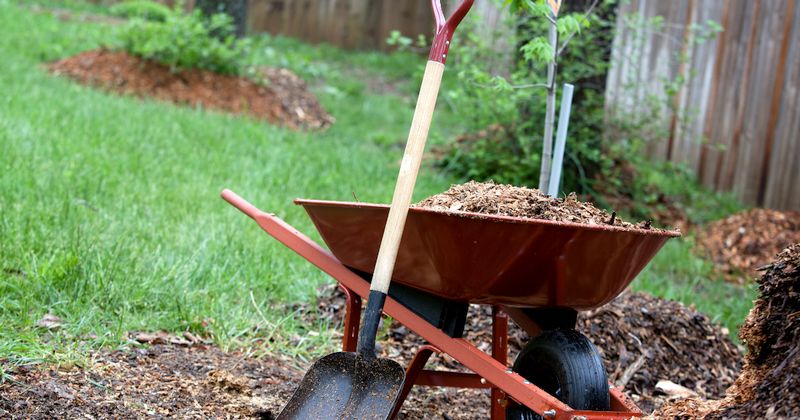Preparing Your Garden for Winter Success
As the vibrant colors of summer slowly fade into the warm, earthy hues of autumn, homeowners begin to prepare for the colder months ahead. One essential task in this process is fall mulching, a practice that can help protect your garden, conserve soil moisture, and enhance the overall health of your plants. In this blog post, we’ll explore the benefits of mulching in the fall, and the different types of mulch available.
Why Mulching in the Fall Matters
Insulating Your Soil
The primary role of mulch in the fall is to insulate the soil. Even in more temperate Southern states like North Carolina, we get our share of below-normal temperatures. And as temperatures drop, the ground can become extremely cold, which can stress the roots of your plants. Adding a layer of mulch creates a buffer that keeps the soil temperature more stable. This insulation prevents the ground from freezing and helps protect the root systems of your plants.
Weed Control
Fall mulch acts as a barrier against weeds. When you cover the soil with mulch, it becomes more challenging for weed seeds to take root. This reduces the need for constant weeding during the fall and spring, saving you time and effort.
Moisture Retention
Fall mulch helps your garden retain moisture. As the weather cools, plants may still need consistent moisture to thrive. Mulch reduces water evaporation and maintains the soil’s moisture levels, keeping your plants hydrated during dry spells.
Erosion Prevention
Another important function of mulch in the fall is erosion prevention. As the weather turns wet and windy, mulch acts as a protective barrier against soil erosion. It keeps the topsoil in place, preventing it from being carried away by heavy rain or strong winds.
Choosing the Right Mulch
Organic Mulch: Organic mulches such as shredded leaves, straw, or wood chips are excellent choices for fall mulching. They decompose over time, enriching the soil with valuable nutrients.
Inorganic Mulch: Materials like landscape fabric or stone gravel also make good options for mulching. They don’t break down, so you won’t need to replace them as often, but they don’t provide the same soil enrichment as organic mulch.
Fall mulching is a simple yet essential practice for gardeners.
Mulching offers numerous benefits, from insulating your soil to controlling weeds and preventing erosion. So as the leaves fall and the temperature drops, consider mulching your garden to set the stage for a successful growing season next spring. Your garden will thank you for the extra care and protection it receives during the fall months.
Green Gene’s Horticulture, Inc. can help you prepare your garden for the winter with mulching. Give us a call today to schedule an appointment at 919-562-7524.
Be sure to take advantage of our Fall 2023 Mulching Special – Save 15% – ends November 15.

